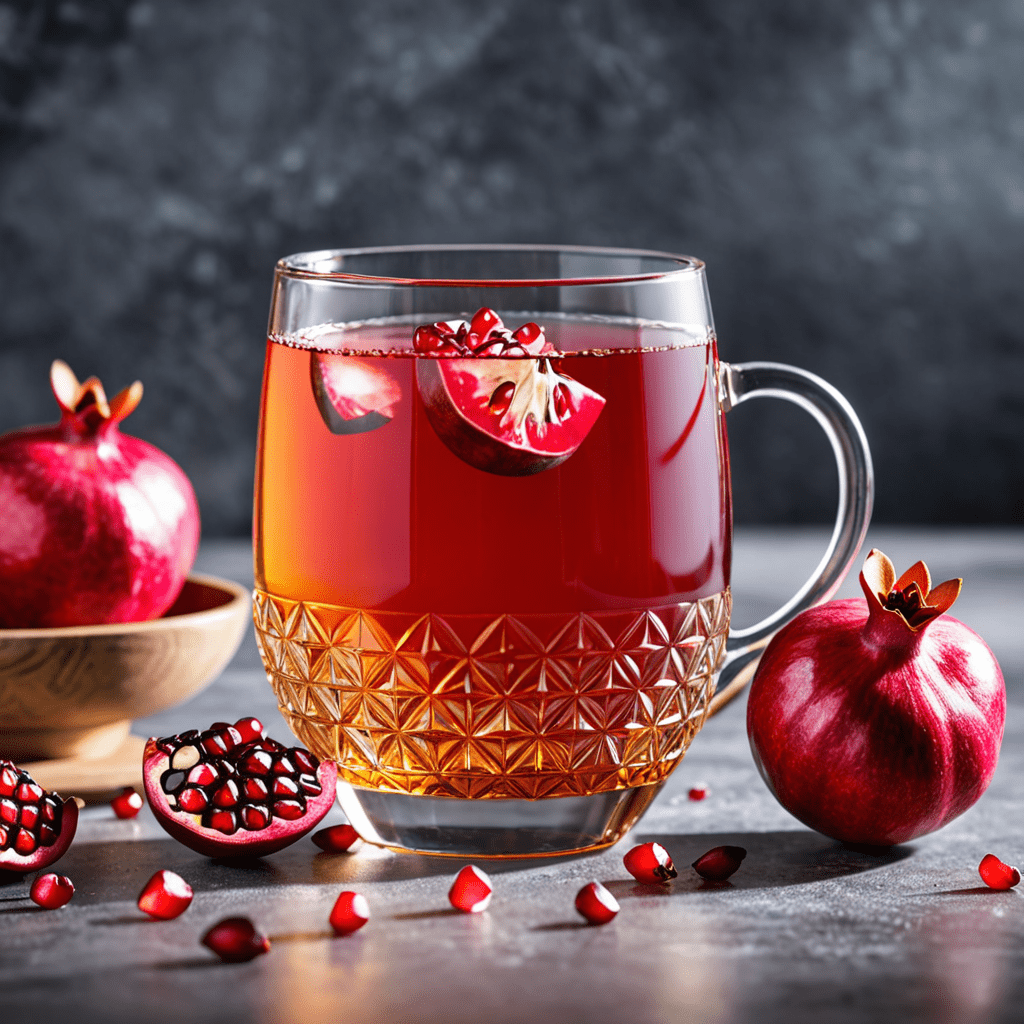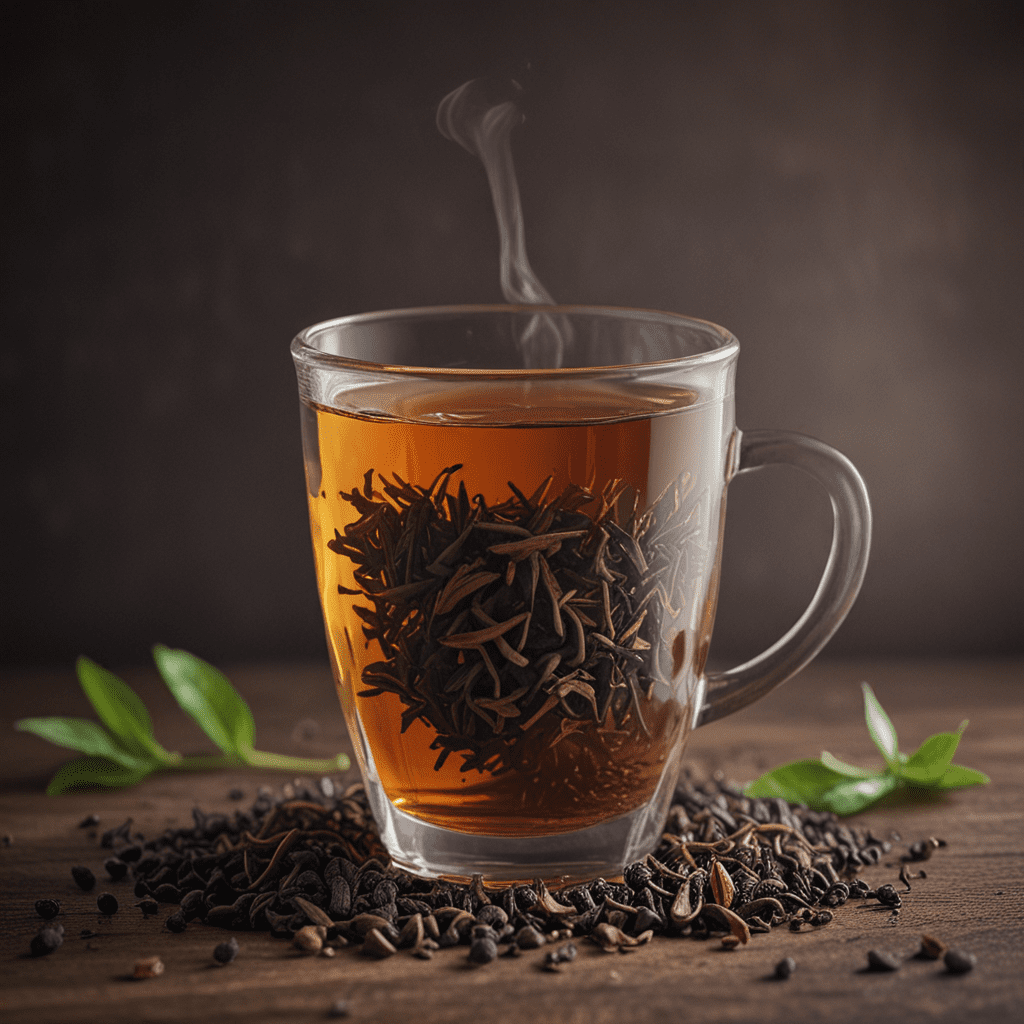1. Introduction to Assam Tea: The Crown Jewel of Teas
Assam tea, a legendary brew with an unmatched reputation, reigns supreme as the "Crown Jewel of Teas." Originating from the verdant landscapes of Assam, India, this exceptional tea has captivated tea connoisseurs worldwide with its robust flavor, full-bodied character, and remarkable health benefits. Embarking on a journey into the world of Assam tea is venturing into a realm of exquisite tastes and a rich cultural legacy rooted in centuries of tradition.
2. The Legacy and History of Assam Tea: A Timeless Treasure
The history of Assam tea is a tale of serendipitous discovery and relentless innovation. In the mid-19th century, British explorer Robert Bruce discovered wild tea plants thriving in the Brahmaputra Valley of Assam. Recognizing the potential of this extraordinary tea, he initiated its cultivation, giving birth to the Assam tea industry. Over the years, Assam tea plantations flourished, establishing India as a global powerhouse in tea production. Today, Assam tea continues to be revered as a timeless treasure, celebrated for its distinctive character and exceptional quality.
3. The Terroir of Assam: Nurturing the Finest Tea Gardens
The terroir of Assam, characterized by its unique geographical and climatic conditions, plays a pivotal role in shaping the exceptional flavor of Assam tea. The region's fertile soil, abundant rainfall, and ample sunshine provide an ideal environment for tea plants to thrive. The Brahmaputra River, the lifeblood of the region, nourishes the soil with its rich sediments, further enhancing the growth and quality of tea leaves. The combination of these factors creates an unparalleled terroir, giving rise to the distinctive flavor profile of Assam tea.
4. Assam Tea Varieties: A Symphony of Flavors
Assam tea offers a diverse range of varieties, each with its own distinctive flavor and character. The most popular varieties include:
Assam Black Tea: This classic variety is renowned for its bold and malty flavor. It is typically brewed strong and enjoyed with milk and sugar, although it can also be enjoyed as a refreshing iced tea.
Assam Green Tea: Unlike its black counterpart, Assam green tea undergoes minimal oxidation, resulting in a lighter, more delicate flavor. It is known for its vegetal notes and a slight sweetness.
Assam Oolong Tea: This semi-oxidized tea strikes a balance between the robustness of black tea and the subtlety of green tea. It offers a complex and nuanced flavor profile with hints of fruit and florals.
5. The Process of Assam Tea Production: From Leaf to Cup
The production of Assam tea is an intricate and meticulous process that involves several key steps:
Plucking: Tea leaves are carefully handpicked from the tea bushes, typically twice a year – during the spring and autumn seasons.
Withering: After plucking, the tea leaves are spread out to wither, reducing their moisture content and initiating the oxidation process.
Rolling: This step helps to break down the cell walls of the leaves, releasing their flavor and aroma.
Oxidation: Black tea undergoes full oxidation, while green tea is oxidized to a lesser extent, giving each variety its distinctive color and flavor.
Drying: The oxidized leaves are then dried in controlled conditions to stop the fermentation process.
6. Brewing the Perfect Assam Tea: Unveiling Its True Potential
The art of brewing Assam tea is an integral part of unlocking its full flavor and aroma. Here are some essential steps to ensure the perfect cup of Assam tea:
Water: Use fresh, cold water and bring it to a rolling boil.
Tea Leaves: Measure out 2-3 grams of tea leaves for each 8-ounce cup of water.
Teapot: Use a teapot made of porcelain, ceramic, or glass to preserve the flavor of the tea.
Steeping Time: Steep the tea leaves for 3-5 minutes, depending on your desired strength.
Milk and Sugar: Traditionally, Assam black tea is enjoyed with milk and sugar. However, these additions are optional and can be adjusted to personal taste.
7. Health Benefits of Assam Tea: A Brew of Wellness
Assam tea is not only a flavorful beverage but also a source of several health benefits:
Antioxidants: Rich in antioxidants, Assam tea helps combat free radicals, protecting cells from damage and reducing the risk of chronic diseases.
Improved Digestion: Assam tea has mild laxative properties, aiding in digestion and relieving constipation.
Boosted Immunity: The antioxidants in Assam tea help strengthen the immune system and reduce the risk of infections.
- Reduced Inflammation: Assam tea contains anti-inflammatory compounds that can help reduce inflammation throughout the body.
8. Assam Tea Beyond India: A Global Delight
Assam tea has transcended its Indian roots to become a globally celebrated beverage. It is exported to countries worldwide and enjoyed by tea enthusiasts from diverse cultures. In the United Kingdom, Assam tea is a staple in the traditional afternoon tea ritual. In Russia, it is often consumed with lemon and sugar. In the United States, Assam tea is popular as a robust breakfast tea.
9. Sustainability in Assam Tea: Preserving the Legacy
Sustainability is paramount in the Assam tea industry. Tea plantations are embracing eco-friendly practices to preserve the environment and ensure the longevity of the industry. These practices include:
Organic Farming: Many tea gardens have adopted organic farming methods, eliminating the use of chemical pesticides and fertilizers.
Water Conservation: Tea plantations are implementing water-saving irrigation techniques to reduce water consumption.
Fair Trade Practices: Fair trade initiatives ensure that tea workers receive fair wages and working conditions.
10. Experiencing Assam Tea: Gardens, Factories, and Tea Tastings
For an immersive tea experience, visit the lush tea gardens of Assam. Take a guided tour to learn about the tea-making process and witness the beauty of the plantations. Visit tea factories to see how the tea leaves are processed and packaged. And, of course, indulge in tea tastings to sample the diverse range of Assam teas and appreciate their unique flavors.
Frequently Asked Questions (FAQs)
Q: What is the difference between Assam black tea and Assam green tea?
A: Assam black tea undergoes full oxidation, giving it a bold and malty flavor. Assam green tea undergoes minimal oxidation, resulting in a lighter, more delicate flavor with vegetal notes.
Q: How do I store Assam tea?
A: Store Assam tea in an airtight container in a cool, dry place away from direct sunlight and moisture.
Q: Can I drink Assam tea every day?
A: Yes, Assam tea can be enjoyed daily as part of a balanced diet. However, excessive consumption may lead to caffeine-related side effects.
Q: What are the health benefits of Assam tea?
A: Assam tea is rich in antioxidants, which help combat free radicals and protect against chronic diseases. It can also aid in digestion, boost immunity, and reduce inflammation.
Q: How do I make the perfect cup of Assam tea?
A: Use fresh, cold water and bring it to a rolling boil. Measure out 2-3 grams of tea leaves for each 8-ounce cup of water and steep for 3-5 minutes, depending on desired strength. Enjoy with milk and sugar to taste.


